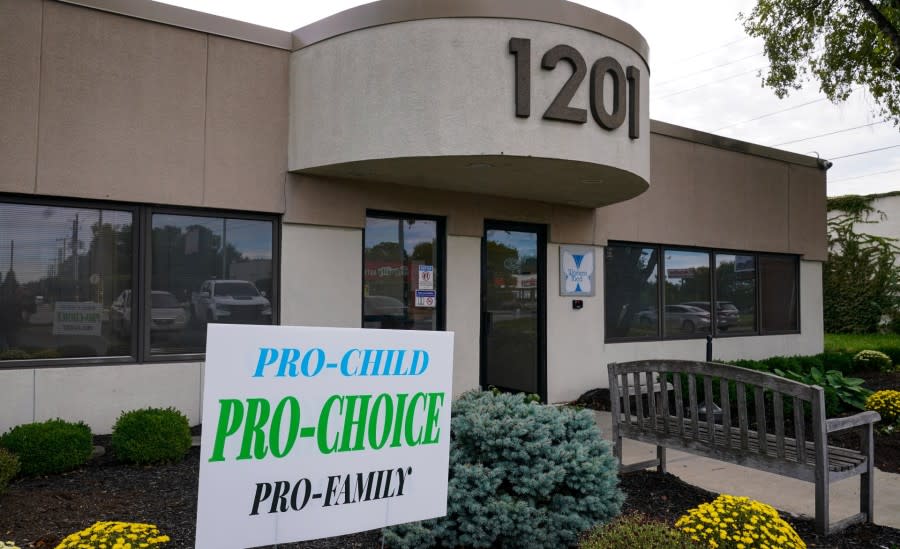More abortion clinics forced to close 100 days post-Roe

Story at a glance
On June 24, 2022, the U.S. Supreme Court struck down Roe v. Wade, a 50-year precedent that affirmed the constitutional right to abortion.
Oct. 2, 2022, marked 100 days since that decision, and 66 clinics across 15 states have been forced to cease offering abortions.
That’s because after June 24, a surge of states rushed to enact restrictive abortion laws and forced many clinics to either shut down completely or limit their services.
The month of October marks 100 days since the Supreme Court struck down the constitutional right to abortion, triggering a dramatic surge in states enacting restrictive abortion laws and forcing health care clinics across the country to shut down.
New data collected by the Guttmacher Institute, an abortion advocacy and policy group, found that since the Supreme Court’s June 24 decision to overturn the 50-year precedent set by Roe v. Wade, 66 clinics across 15 states have been forced to stop offering abortions.
Alabama, Arizona, Arkansas, Idaho, Kentucky, Mississippi, Louisiana and Oklahoma are among those states that experienced clinics closing, all enacting abortion laws that outright ban the procedure or have imposed limited circumstances when it’s permitted.
Before the Supreme Court’s decision, these 15 states had a total of 79 clinics that provided abortion care—100 days later it dropped down to only 13, all of which are located in the state of Georgia. That means there are no providers currently offering abortions in 14 of the 15 states.
America is changing faster than ever! Add Changing America to your Facebook or Twitter feed to stay on top of the news.
That’s because Georgia currently allows abortions, but only until six weeks of pregnancy, which is typically when a fetal heartbeat can be detected by an ultrasound but before many people know they are pregnant. The law does include exceptions for rape, incest and medical emergencies.
Among the 66 clinics where abortion is no longer provided, Guttmacher found 40 are still operating by offering non-abortion services, like prescribing birth control or helping patients find abortion care in other states. Twenty-six clinics have shut down entirely.
There are still more clinics that are in limbo, with Rachel Jones, principal research specialist at Guttmacher, explaining that Indiana, Ohio and South Carolina each had total or six-week abortion bans go into effect briefly before they were temporarily blocked in court.
“These bans could go into effect again soon. Disruptions to service provision—even when temporary—affect the ability of established providers to quickly resume abortion care,” said Jones, in a statement.
Guttmacher calculated that within the 14 states where abortion is currently unavailable, 125,780 abortions occurred there in 2020. In Georgia, the 15th state where there are still operating abortion clinics, 41,620 abortions took place in 2020.
Altogether, these 15 states are home to almost 22 million women of reproductive age, which is between 15 to 49 years of age and means about 29 percent of the total U.S. population of women of reproductive age are living in a state where abortion is either unavailable or severely restricted.
Guttmacher’s new data follows the state of abortion clinics 30 days post-Roe, when at that point 43 clinics across 11 states had been forced to stop offering abortion services.
When abortion clinics close down or stop offering abortion care, it becomes a lost source of health care for entire communities. The loss isn’t isolated either, as neighboring states and even those farther away end up filling that void, explained Jones.
“Abortion clinics in these states are being inundated with people from states with abortion bans seeking care. Such dramatic increases in caseloads mean clinic capacity and staff are stretched to their limits—resulting in longer wait times for appointments even for residents of states where abortion remains legal.”
Illinois is one of those states, becoming an abortion safe haven overnight as nearby Indiana, Ohio and Kentucky all enacted restrictive abortion laws. It prompted Planned Parenthood of Illinois (PPIL) to expand its operation to accommodate an influx of patients, with Jennifer Welch, president and CEO of PPIL, describing Illinois as, “an oasis for care in a vast abortion desert, here in the middle of the country.”
Through a state legislative tracker, Guttmacher predicts there are 26 states certain or likely to ban abortion within one year of Roe being overturned.
Limiting access to abortion has serious consequences for the U.S., as health care providers expect abortion bans to increase the number of maternal deaths — an area the country already struggles with. The Centers for Disease Control and Prevention (CDC) estimates about 700 women die annually from pregnancy-related complications.
One estimate from the University of Colorado found denying all wanted abortions could result in an estimated 49 maternal deaths within the first year of an abortion ban — a 7 percent increase. In subsequent years, there could be 140 additional deaths — a 21 percent increase.
For the latest news, weather, sports, and streaming video, head to The Hill.

